Discover Take on Tomorrow
Take on Tomorrow
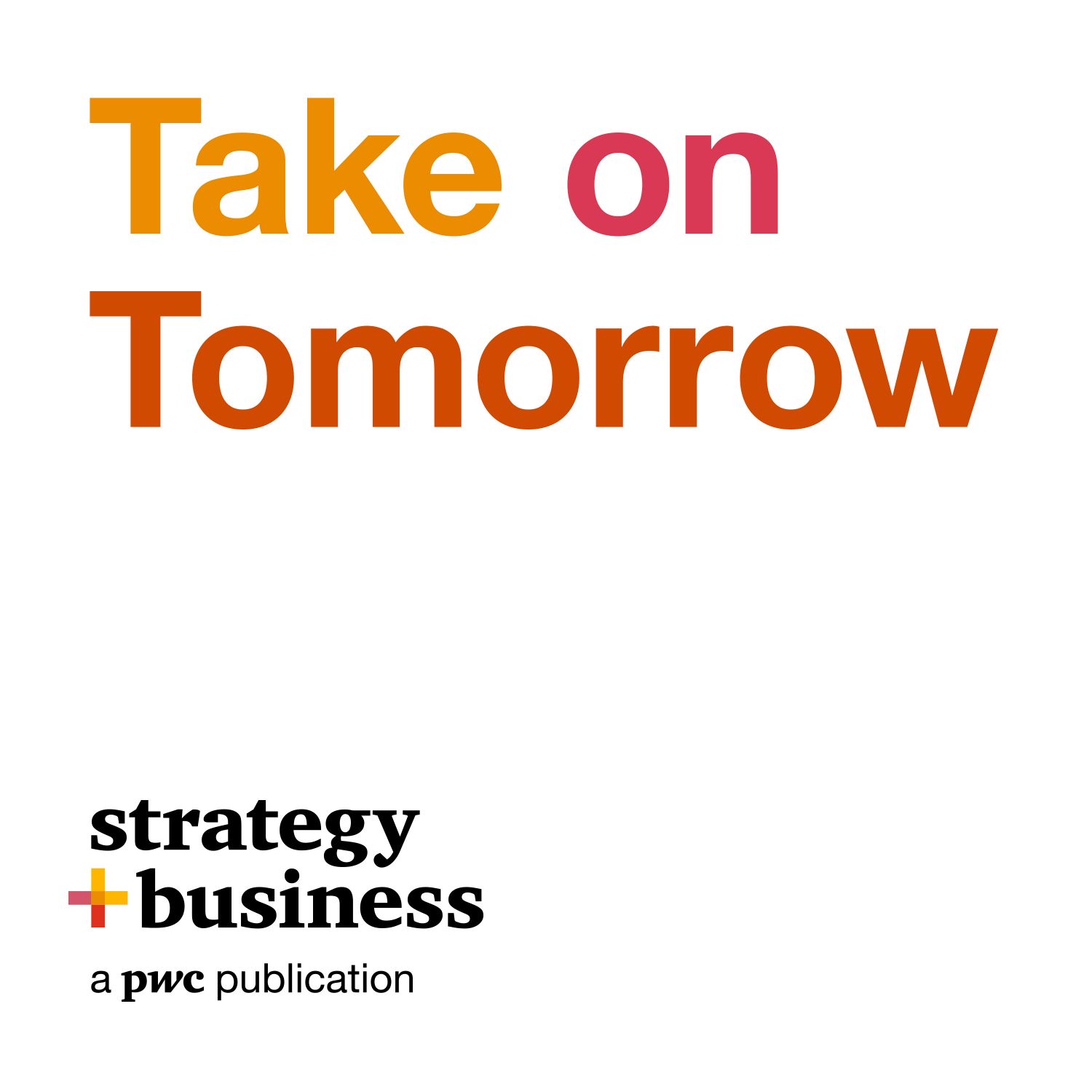
Take on Tomorrow
Author: PwC
Subscribed: 526,450Played: 1,261,757Subscribe
Share
Take on Tomorrow is brought to you by strategy+business, a PwC publication © 2025 PwC.
Description
How can business help solve society’s biggest challenges?
Welcome to Take on Tomorrow, the award-winning podcast from PwC that examines the biggest problems facing society and the role business can—and should—play in solving them. Hosts Femi Oke and Lizzie O’Leary talk to industry innovators, tech trailblazers and visionary leaders from around the globe about timely topics: from the climate transition to AI and data; and from the future of food to how we build, move and power the world.
Welcome to Take on Tomorrow, the award-winning podcast from PwC that examines the biggest problems facing society and the role business can—and should—play in solving them. Hosts Femi Oke and Lizzie O’Leary talk to industry innovators, tech trailblazers and visionary leaders from around the globe about timely topics: from the climate transition to AI and data; and from the future of food to how we build, move and power the world.
47 Episodes
Reverse
Have you noticed something different about customer service calls lately? Maybe even something...delightful? Perhaps the service rep not only anticipated your question but had the perfect suggestion? That could be AI working behind the scenes, supporting those call center employees and making life a little smoother for you. It’s just one way technology is shaping our everyday lives and changing how businesses serve customers—and interact with their workforce. All this change is happening at breakneck speed—so how can businesses get ready for a new kind of connection with customers and the world? And how might those connections create new ways of working—and new kinds of value? To find out, our hosts Femi Oke and Lizzie O’Leary are joined by Kris Narayanan, Chief Digital Officer at Verizon Business. Then, Matt Wood, PwC’s Global and US Commercial Technology and Innovation Officer, tells us what leaders need to do to drive the AI revolution in a time of technological and cultural change. Take on Tomorrow is brought to you by strategy+business, a PwC publication © 2025 PwC.
Making all the items we need and use in our everyday lives requires an intricate network of producers, suppliers, and distributors. But intricacy can have consequences: supply chains today are frequently disrupted, even as new technologies are changing everything we thought we knew about manufacturing. Long-standing processes are being revamped to try to make them more efficient, and that means a radical rethinking of the way we make things.In this special episode of Take on Tomorrow, hosts Lizzie O’Leary and Femi Oke talk with Kiva Allgood, Head of the Centre for Advanced Manufacturing and Supply Chains at the World Economic Forum, about the impact of automation on the workforce. Meanwhile, Cara Haffey, Leader of Industry for Industrial Manufacturing and Services at PwC UK, unpacks the opportunities this shift brings for new types of businesses.Take on Tomorrow is brought to you by strategy+business, a PwC publication © 2025 PwC.
Big breakthrough innovations are on the horizon, and they could be coming from an unlikely place. We’re talking about the sort of ideas that would reshape how we move, the medical treatments we receive, and how we adapt to the changing climate and generate new kinds of energy—and they could all stem from a space not typically associated with innovation: the government. Rethinking the public sector’s role in innovation—and how it works together with private industry—may be key to solving the world’s most pressing challenges and improving people’s lives.In this episode of Take on Tomorrow, hosts Lizzie O’Leary and Femi Oke talk to Rafael Laguna de la Vera, Director of Germany’s Federal Agency for Breakthrough Innovation (SPRIND), about why governments should be funding innovation across industries. Plus: Frederik Blachetta, Public Sector Data & AI Leader from PwC Germany, talks to us about how business can work alongside government to drive positive change.Take on Tomorrow is brought to you by strategy+business, a PwC publication © 2025 PwC.
Throughout this special series, we’ve been exploring what happens to business and society when people try to do things differently. But without the funding to pay for that change, real progress can stall. In this episode, we’ll look at the way projects are financed and how it’s unlocking innovation and new partnerships across industries. Hosts Femi Oke and Lizzie O’Leary are following the money into the world of data centers—massive investments requiring trillions of dollars—to uncover how this backbone of our digital lives is built and paid for. We’ll hear from Udhay Mathialagan, Managing Partner in Brookfield’s Infrastructure Group and the CEO of their Global Data Center Group, about why the company’s focusing on the infrastructure that runs AI systems. Plus: Eric Janson, Global Private Equity and Principal Investors Leader, PwC US, helps us dig into creative financing models, the evolving role of financial services, and why capital is the quiet force reshaping entire industries. Take on Tomorrow is brought to you by strategy+business, a PwC publication © 2025 PwC.
Farmers produce, traders distribute, manufacturers process, retailers sell, and governments regulate. And it all comes together so that we can eat each day. But this delicate, complex global system is under immense pressure. Drought and heat stress threaten crops. Geopolitical crises, population growth, and global food waste mean the hunt is on for new solutions. In the decade ahead, feeding the world will require fundamentally different partnerships. So what new business models, products, and services will emerge? In this episode of our special Take on Tomorrow series, hosts Lizzie O’Leary and Femi Oke speak to Mihir Pershad, the founder and CEO of Umami Bioworks, a food technology startup that develops lab-grown seafood such as cultivated eel and tuna. Meanwhile, Carla DeSantis, PwC US Consumer Packaged Goods Leader, explains how humanity can completely reimagine food. Take on Tomorrow is brought to you by strategy+business, a PwC publication © 2025 PwC.
The way we move people and things is changing—transportation is becoming more electric, more autonomous, and more informed by advanced technology. These shifts present significant opportunity, both for new players to enter the mix and existing companies to reinvent themselves—with great potential benefit for society. In this episode of our special Take on Tomorrow series, hosts Lizzie O’Leary and Femi Oke explore the future of mobility with Robin Chase, transportation entrepreneur and cofounder and former CEO of Zipcar. They’re also joined by Heiko Seitz, PwC’s Global eMobility Leader, from PwC Middle East, who takes us through the electric vehicle revolution, and why companies need to rethink their business models if they want to capture the opportunities in this space today and in the years ahead. Take on Tomorrow is brought to you by strategy+business, a PwC publication © 2025 PwC.
What if we completely rethought the way we build? What if the places where we live and work helped cut emissions, and we could drastically improve energy efficiency with a new kind of construction? What if most construction wasn’t even done on-site? These changes, some of them already underway today by businesses establishing new kinds of partnerships, are redefining an age-old industry. In this episode of our special Take on Tomorrow series, hosts Lizzie O’Leary and Femi Oke speak to Emanuel Heisenberg, CEO and founder of Ecoworks, about how adding a “second skin” to existing structures could revolutionize their use in ways that are good for the planet and the pocketbook. Plus, Greg Oberti, a partner in Capital Projects & Infrastructure at PwC Canada, explains the kinds of cross-industry partnerships being forged and how new opportunities are taking shape that will create value in the decade ahead. Take on Tomorrow is brought to you by strategy+business, a PwC publication © 2025 PwC.
People need to be cared for—but the way we approach healthcare treatments hasn’t changed much in recent years. Now, in the age of AI, and with the emergence of more collaborative partnerships, we’re seeing a shift. And it brings a new opportunity for providers to make effective, affordable, preventative, and personalized care a priority—the kind of care that puts the patient at the center. In this episode of our special Take on Tomorrow series, hosts Lizzie O’Leary and Femi Oke talk to Ali Hashemi, health-tech investor and cofounder and CEO of meta[bolic], to explore how this approach to holistic and efficient care is transforming the treatment of diabetes and other metabolic diseases. Meanwhile, India Hardy, Global Health Industries Partner with PwC UK, shares insight into the field’s unique possibilities and what’s driving the need to reinvent how we care in the decade ahead. Take on Tomorrow is brought to you by strategy+business, a PwC publication © 2025 PwC.
The way we power society is transforming, and it’s not happening in a silo. As energy demand and geopolitical tensions both rise, and the shift toward new ways to fuel and power our lives picks up speed, how should businesses rethink the opportunities and challenges ahead? Where can they find new value? And what could the world look like with more collaboration and innovative solutions that have never been tried before? In this episode of our special Take on Tomorrow series, hosts Lizzie O’Leary and Femi Oke talk with Thomas Raffeiner, CEO and founder of The Mobility House, a technology company using a new solution to power cars—and the grid itself—that may completely change how we move. Plus, Jeroen van Hoof, PwC’s Global Energy, Utilities & Resources Leader, from PwC Netherlands, tells us about the paths that businesses and society can open when they think about new ways of working—and moving—together. Take on Tomorrow is brought to you by strategy+business, a PwC publication © 2025 PwC.
This special series of Take on Tomorrow, PwC’s award-winning podcast, unpacks how the global economy will change over the decade ahead and what that means for business and society. We’ll explore how business will navigate—and shape—the challenges and opportunities ahead, including emerging technology, climate impacts, and new ways of collaborating across industries. Though basic human needs will stay the same, the way they’re met—by business, government, and others—will rapidly evolve. We look at distinct domains, each centered around a fundamental and universal human need: how we move, how we make and build things, how we feed and care for ourselves, and how we fuel and power society, as well as the way governments, capital, and technology will enable this industry reconfiguration. Along the way, we’ll meet the innovators driving the efforts to tackle society’s greatest challenges and learn how businesses can capture the value that’s in motion and the exponential possibilities that come with it. Take on Tomorrow is brought to you by strategy+business, a PwC publication © 2025 PwC.
There are strong forces at play right now—deep and profound trends such as technological disruption and social instability, that are changing our lives and the world around us. Business leaders can’t ignore these megatrends. But what actions are they taking? How can they plan amid a constantly shifting landscape? We’ve gathered insights from thousands of CEOs around the world to try to learn what they’re thinking about the big issues—from GenAI to climate change to the need for reinvention—and what it all could mean for the global economy. And we’ve mined the results to see what they can reveal about the future—what it will take for companies to prosper, and how to avoid being left behind.In this episode of Take on Tomorrow, recorded live in Davos, Switzerland, at the World Economic Forum Annual Meeting, PwC’s Sarah von Fischer is joined by Carol Stubbings, PwC’s Global Chief Commercial Officer, and Paul Griggs, PwC US Senior Partner. The trio discuss the findings of PwC’s 28th Annual Global CEO Survey and ask: what does it take to thrive in an uncertain world? Take on Tomorrow is brought to you by strategy+business, a PwC publication © 2025 PwC.
AI is being embedded in everything we do, from the way our cities operate to how we live and work. Information, decision-making, and problem-solving are all being transformed. Enter the “AI agent,” here to help people work smarter and more productively. But will people trust this rapidly evolving technology? And what happens if that trust erodes? Business and society are working to navigate the myriad challenges AI presents—and to answer a big question: how can we work to build responsible AI in the age of agentic AI? In this episode, recorded live at the WEF Annual Meeting in Davos, PwC’s Sarah von Fisher is joined by PwC’s Matt Wood, Global and US Commercial Technology & Innovation Officer. They discuss what the age of agentic AI looks like and what leaders can do to make sure the technology is deployed ethically, and with accountability and transparency—as AI becomes more engrained in our everyday lives. Take on Tomorrow is brought to you by strategy+business, a PwC publication © 2024 PwC.
More than two years have passed since generative AI went mainstream. Now the pressure is on for the technology to deliver concrete results. So has it lived up to all the hype? And, in particular, has GenAI met its early promise to boost workplace productivity and help employees engage in more high-impact work? Hosts Lizzie O’Leary and Femi Oke talk with Svenja Gudell, Chief Economist at the jobs site Indeed, about the state of the labor market in this new GenAI world and the workforce shifts that are already underway. PwC’s Global Workforce Leader, Pete Brown, brings fresh insights from a new report issued by the World Economic Forum, in collaboration with PwC, that looks at how businesses can roll out GenAI for job augmentation and to help worker productivity. In an economic environment currently characterized by low productivity growth, are we seeing signs that GenAI can make a difference? Take on Tomorrow is brought to you by strategy+business, a PwC publication © 2025 PwC.
Business leaders are asked to perform the ultimate balancing act. They face pressure to manage their company’s environmental footprint, adjust to the impacts of climate change, and build rewarding experiences for employees and customers, all while continuing to deliver financial performance. So, how do they accomplish that? And what can the business world learn from companies that are already testing new ways to respond to these pressures? In this episode of Take on Tomorrow, hosts Lizzie O’Leary and Femi Oke talk with Charles Conn—venture capital investor, author, and longtime Board Chair of outdoor gear and clothing company Patagonia. They discuss how Patagonia squares its ethical commitments with the need to make money in a highly competitive market, and lessons the company’s learned that can apply to other businesses. They also talk to Colm Kelly, Global Leader, Corporate Sustainability, for the PwC network, about what he hears in boardrooms and how the real-world impacts of the climate transition are prompting change. Take on Tomorrow is brought to you by strategy+business, a PwC publication © 2024 PwC.
The world is full of uncertainties right now. But there’s also opportunity: a chance for reinvention on a global scale, for business and society to work together to create a future that’s inclusive, sustainable, and resilient.To learn more about that vision of the future, Take on Tomorrow is recording live from the APEC CEO Summit—the most influential annual gathering of business and political leaders from the Asia-Pacific rim’s 21 economies—where we’ll unpack some of the crucial discussions happening at this year’s event. PwC’s Sarah von Fischer is on the ground in Lima, Peru, where she’s joined by PwC’s Global Chairman Mohamed Kande, and Sintesa Group’s CEO Shinta Kamdani. The trio discuss the vital role the Asia-Pacific region plays in inclusive global growth, the impact of new technologies, and how to stay resilient in a shifting world.Take on Tomorrow is brought to you by strategy+business, a PwC publication © 2024 PwC.
Consider this: more than half of the companies that were listed on the Fortune 500 in 2003 have since gone bankrupt, been acquired, or otherwise ceased to exist. And the question of survival is just as urgent for businesses today: 45% of respondents in PwC’s most recent Global CEO Survey said their company won’t be viable in ten years if it sticks to its current path. So how do businesses stay ahead of the curve, and make sure they’re still around in 20 years’ time? In this episode of Take on Tomorrow, hosts Lizzie O’Leary and Femi Oke are joined by Daniel Susskind, Research Professor in Economics at King’s College London, Senior Research Associate at Oxford University, and author of Growth: A Reckoning. Together, they look at how innovation and ideas can lay the groundwork for a new way to measure growth. PwC’s Global Business Model Reinvention Leader, Matthew Duffey, also joins the discussion to explain why companies need to innovate—sometimes completely reinventing their business models—if they’re to compete in the late 2020s and beyond. Take on Tomorrow is brought to you by strategy+business, a PwC publication © 2024 PwC.
Food is essential for our health, survival and social well-being. But global food security is facing increased threats. Climate change, global tensions and supply chain disruptions mean our food systems are becoming more precarious. And as the global population grows, demand for food shows no signs of slowing. So, what role can businesses play in reimagining our food systems? And how can they help with the changes that will be required to secure our food supply for generations to come? In this episode of Take on Tomorrow, hosts Lizzie O’Leary and Femi Oke are joined by Rob Cameron, Global Head of Environmental, Social, and Governance Engagement at Nestlé, to find out how the company is working to build more resilient food systems. They also talk to Stuti Sethi, a thought leader with Strategy&, PwC’s global strategy consulting business, about the roles of business and government in strengthening food systems—and why a combined effort is so important for the future of food.
Quantum computing could revolutionize how we live, and it's fast approaching reality—but is the world ready? Quantum computers use the laws of quantum mechanics to solve complex problems in seconds—making them far more powerful than the most advanced supercomputer. The possibilities seem limitless: it could help treat previously incurable diseases, help us make better informed decisions, and completely reinvent our ways of living. The impact will be huge. So, how should business leaders navigate this unchartered territory? How can they invest in the right technology? How will workers learn to use it, and what are the benefits–and risks–to society? In this episode of Take on Tomorrow, hosts Lizzie O’Leary and Femi Oke talk with Caltech mathematical physicist Spiros Michalakis about the forthcoming quantum revolution and what it could mean for businesses and society, and PwC’s Global Chief AI Engineer Scott Likens weighs in on the business opportunities this new technology could bring.
No one is untouched by the effects of climate change. That includes businesses of all sizes, which face the mounting risks of nature loss and a warming planet. But these challenges can also reveal opportunities. The transformation, and sometimes complete reinvention, of how a business functions could be just what’s needed to spark the new ways of thinking that will lead to green growth. To tackle these issues—and launch Series 3 of Take on Tomorrow—we’ve recorded an episode live, on the ground, at Climate Week NYC. Host Lizzie O’Leary talks with Helen Clarkson, CEO of Climate Group, and Renate de Lange, PwC’s Global Sustainability Markets Leader, to hear how—despite the risks climate change presents—there’s still a huge opportunity to build greener, more successful, and more sustainable businesses that can thrive through the decades ahead. Take on Tomorrow is brought to you by strategy+business, a PwC publication © 2024 PwC.
Take on Tomorrow, the award-winning podcast from PwC’s management publication, strategy and business, returns on Friday 27 September for Series 3. Join hosts Lizzie O’Leary and Femi Oke and hear some of the brightest minds and boldest thinkers on how they’re tackling the greatest challenges facing the world. Follow Take on Tomorrow so you don’t miss an episode.


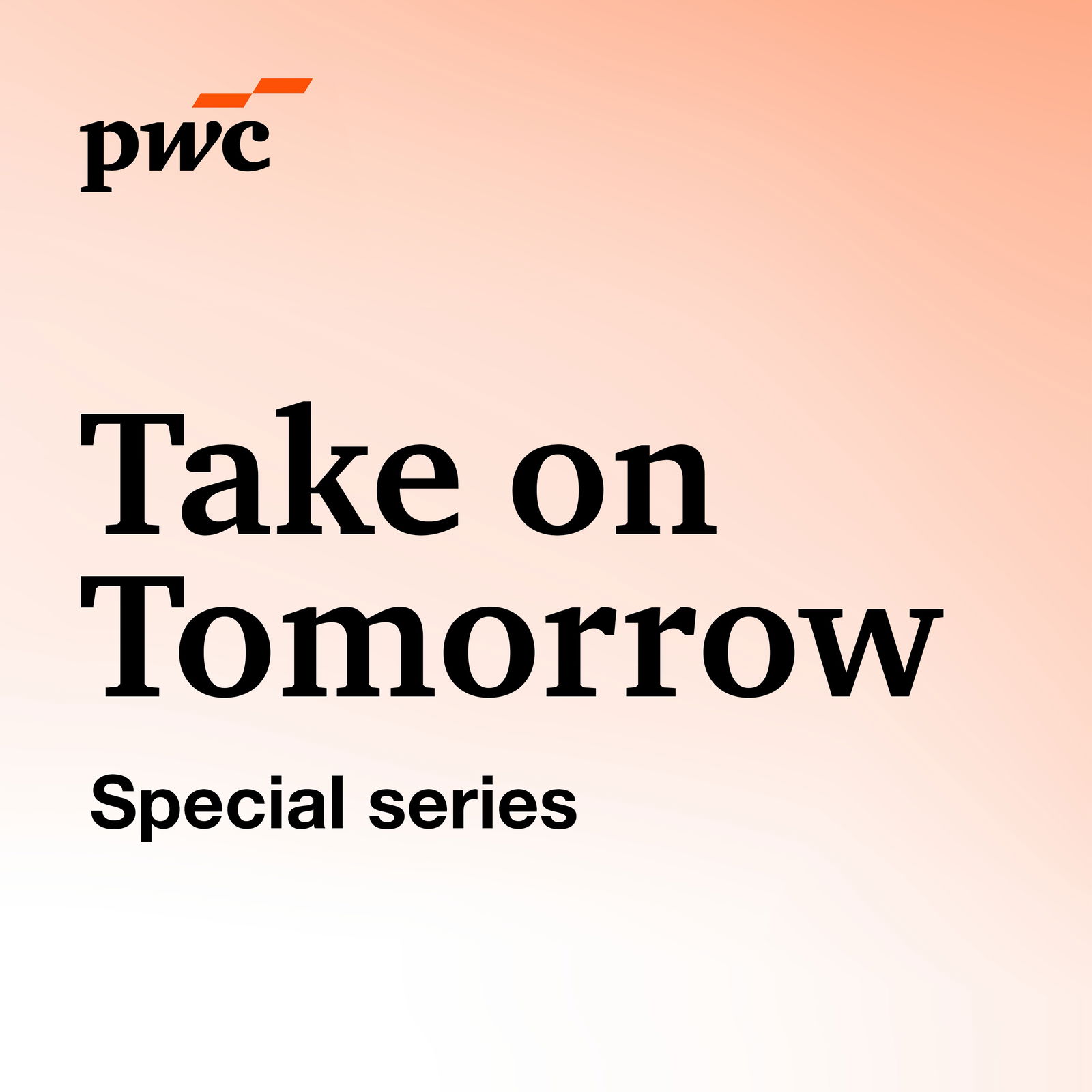
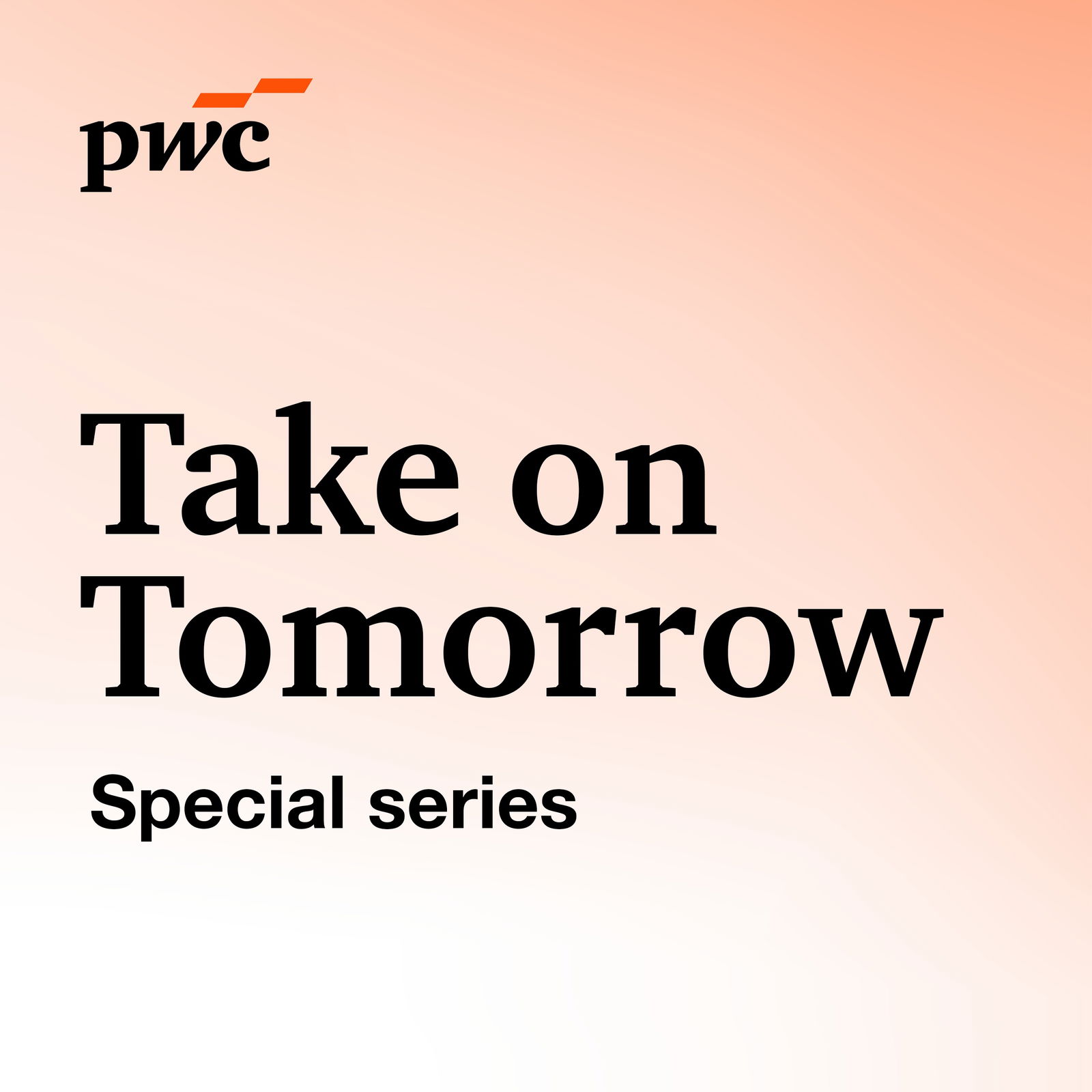
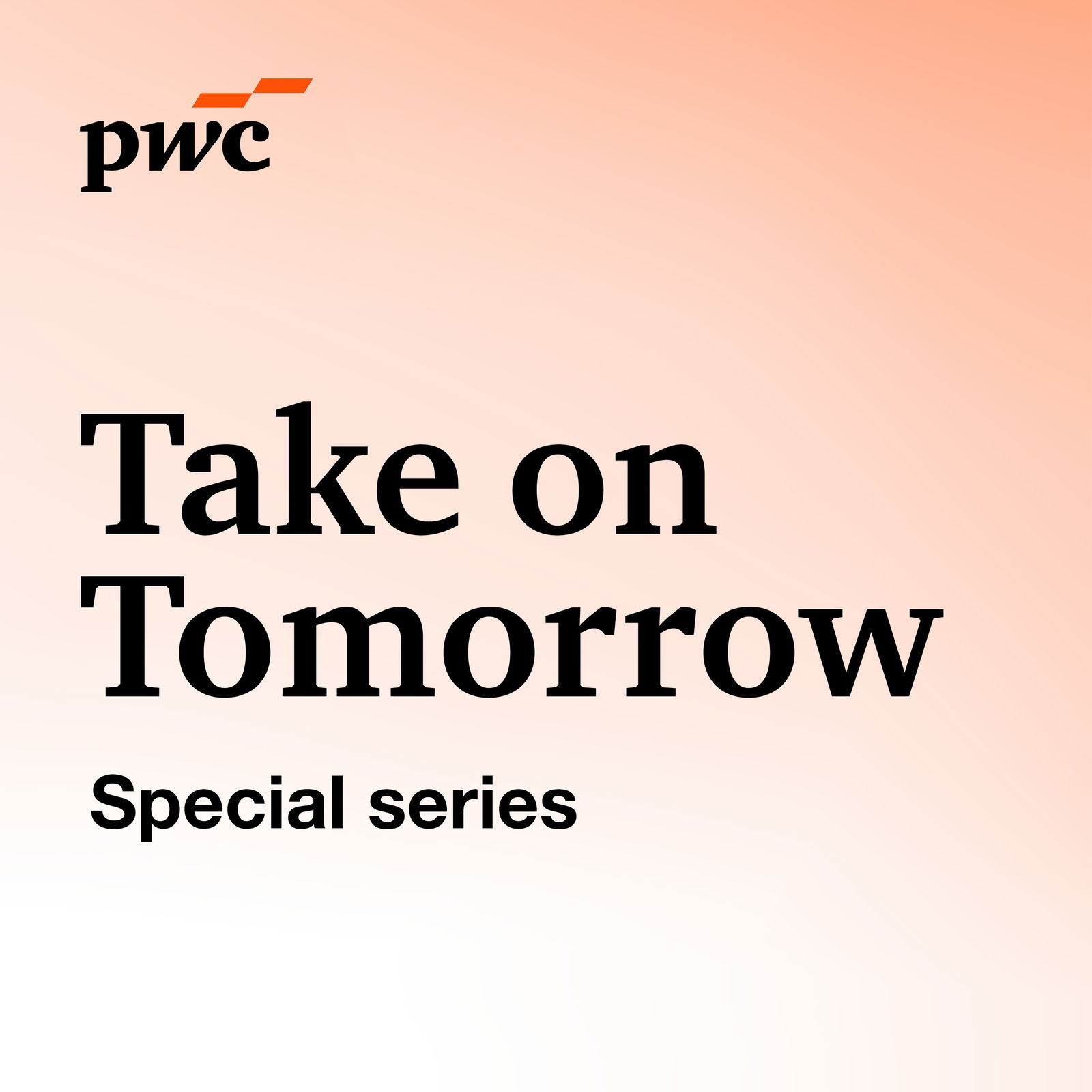
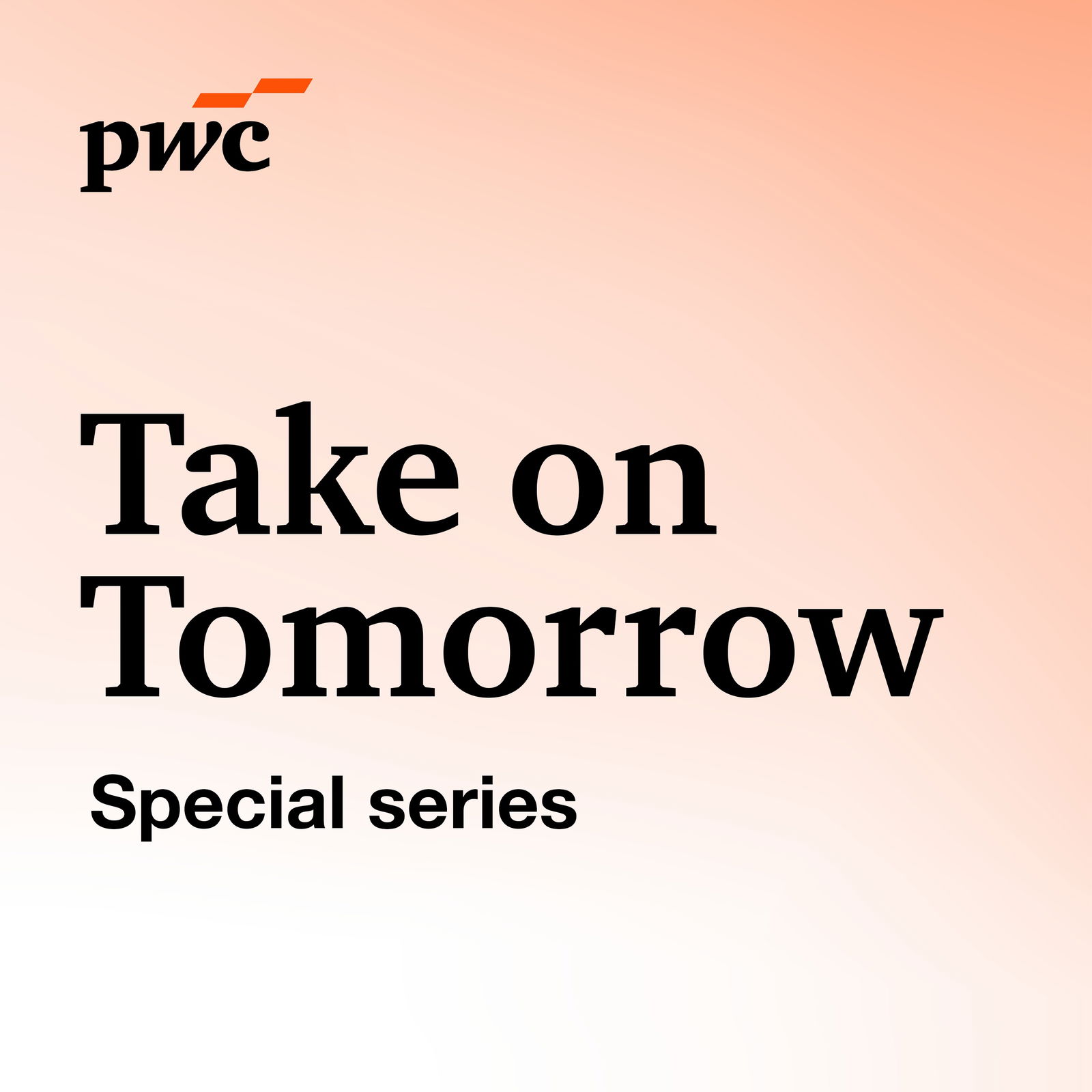
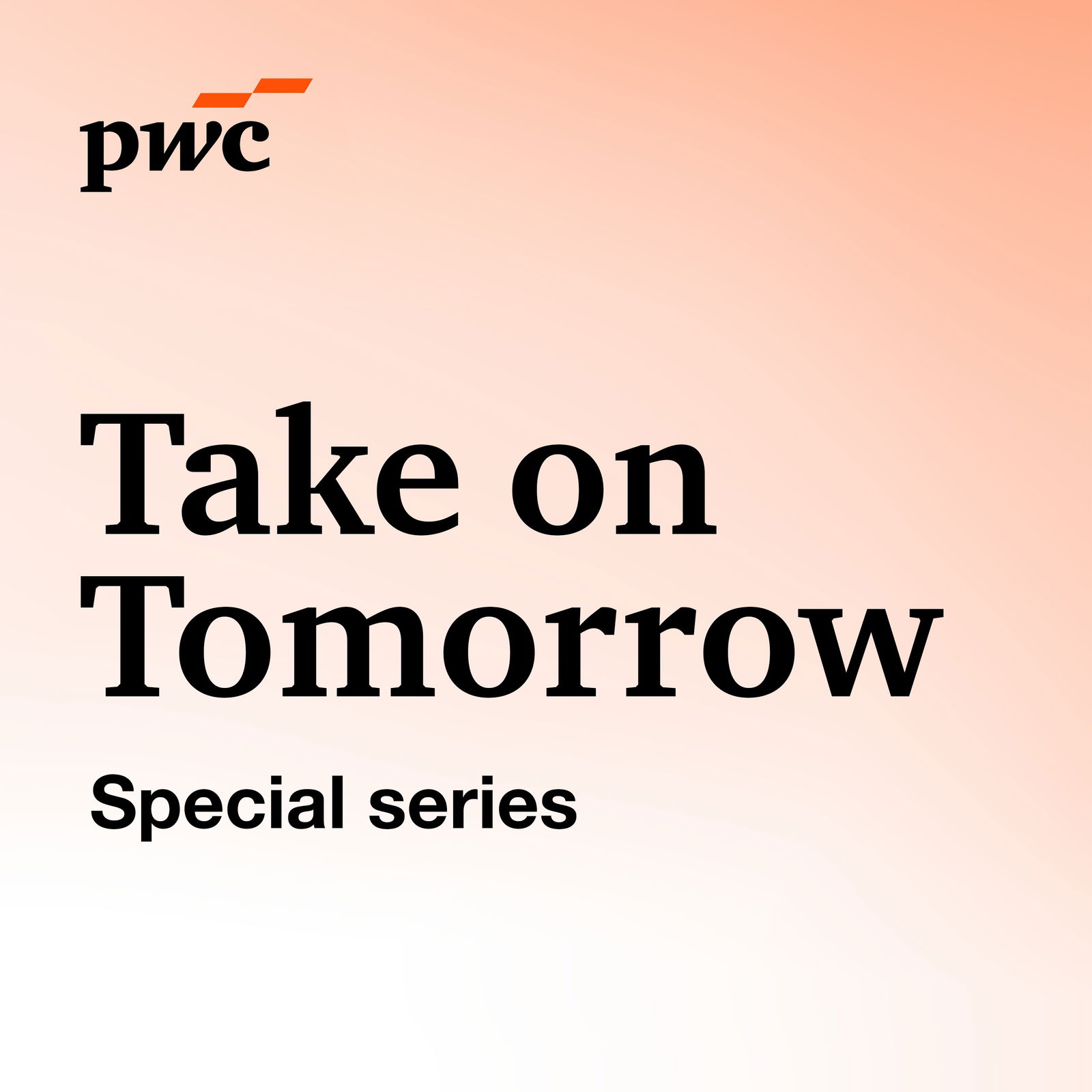
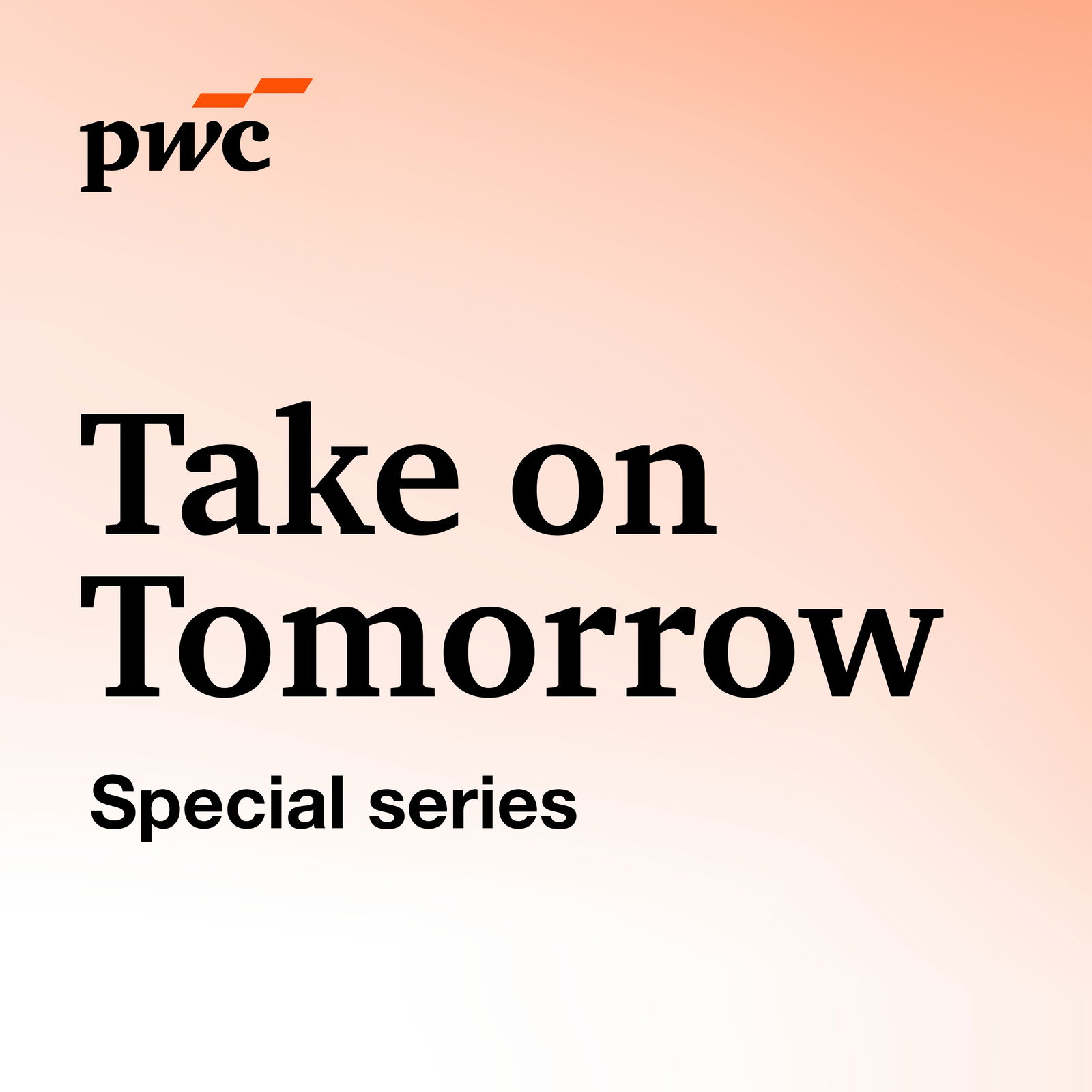
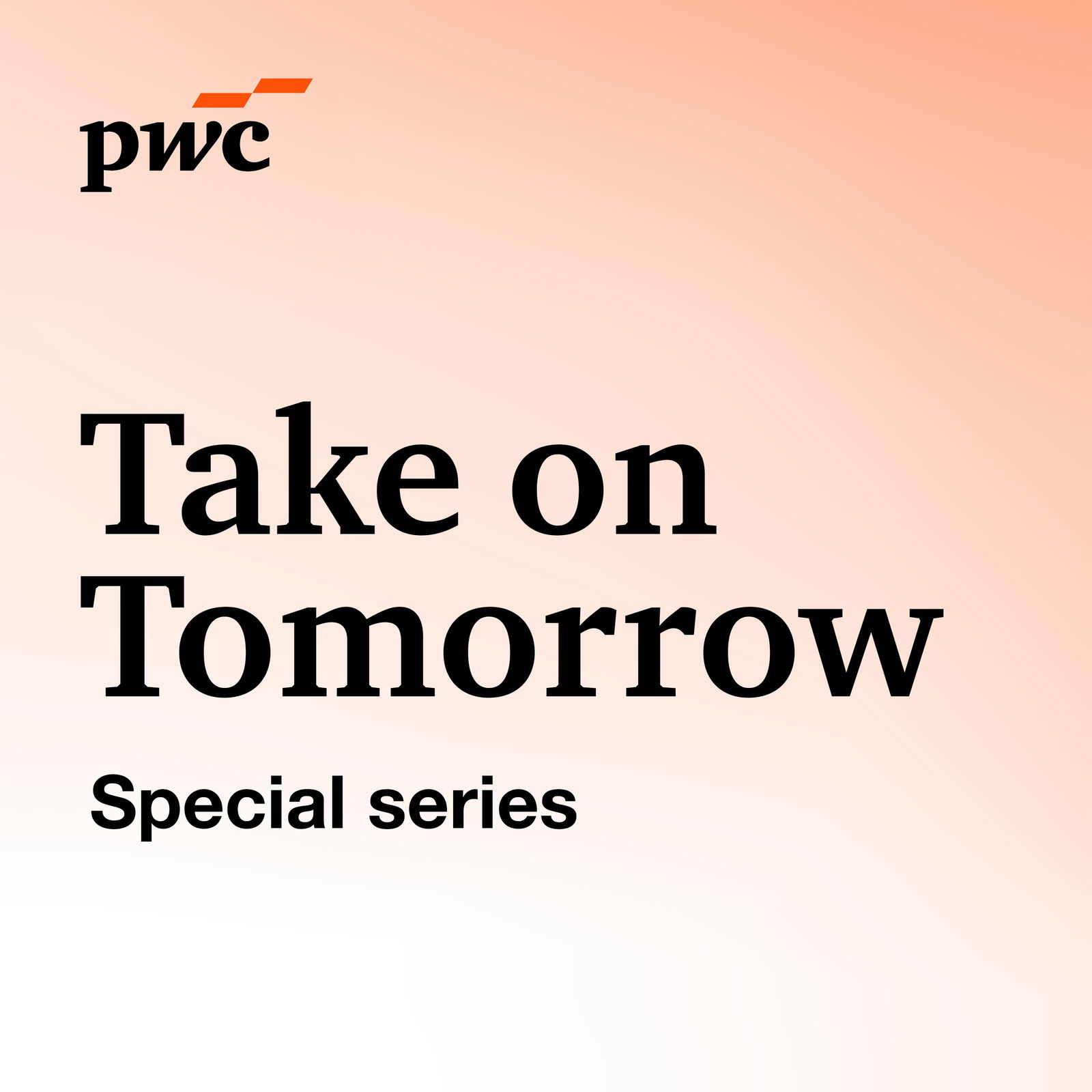
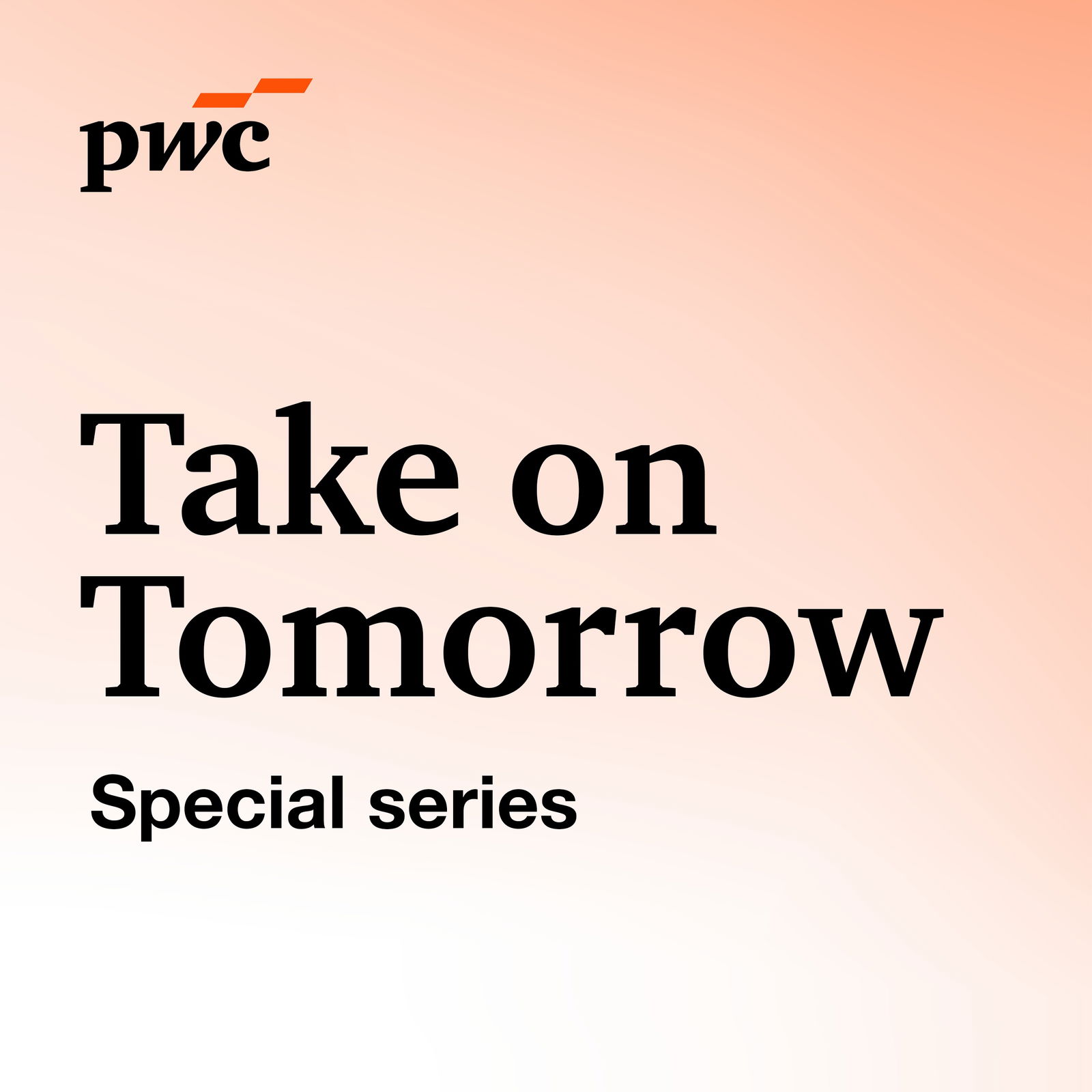
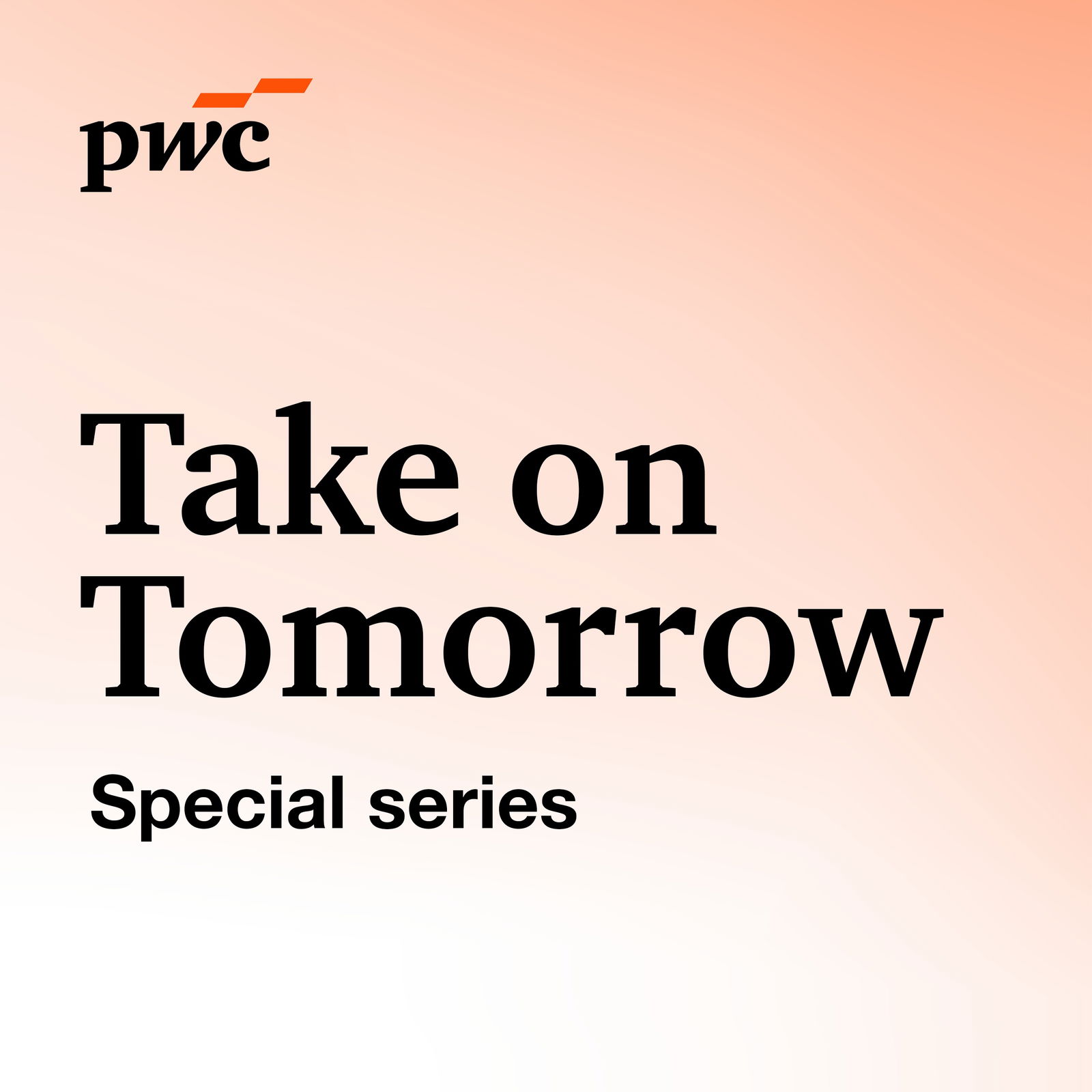
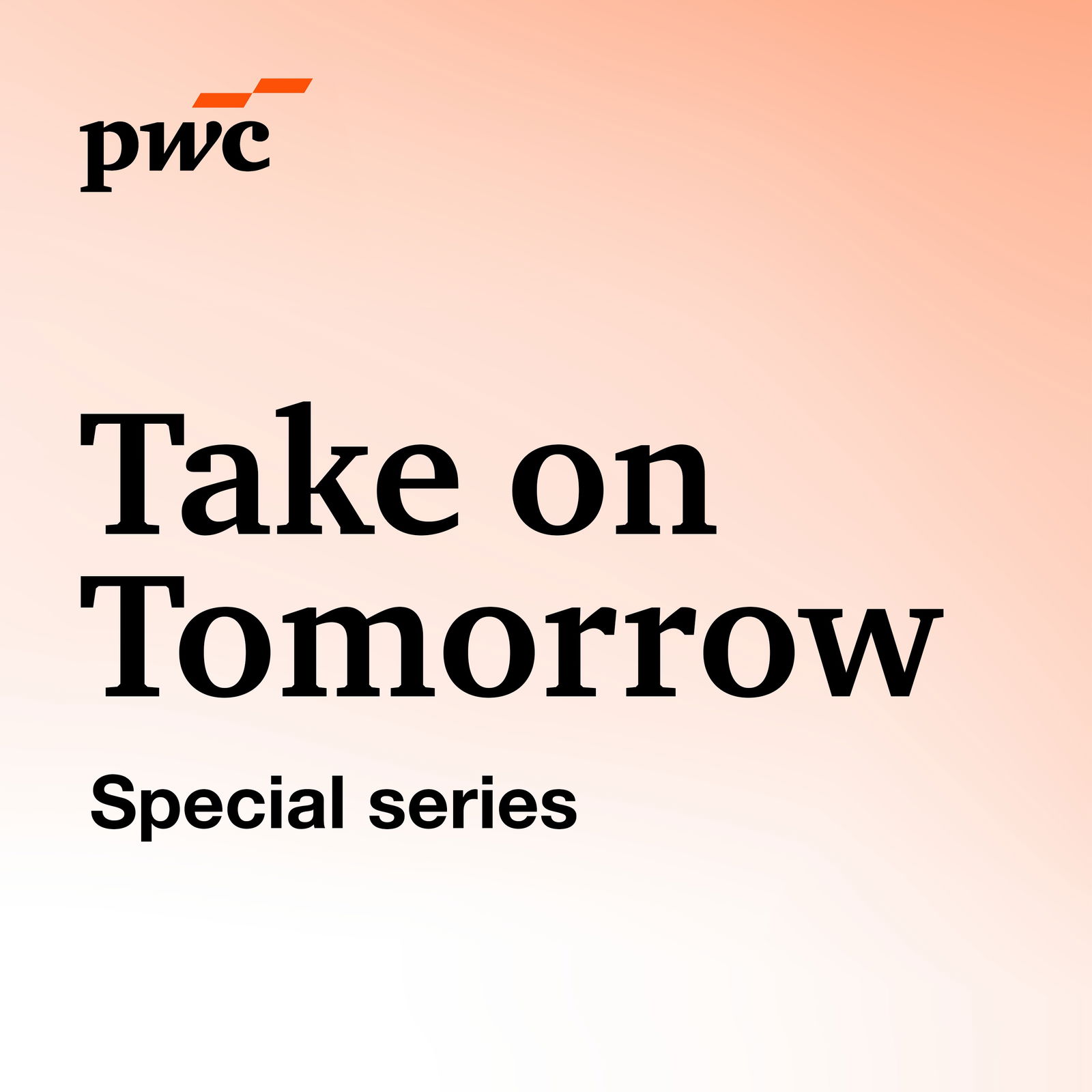
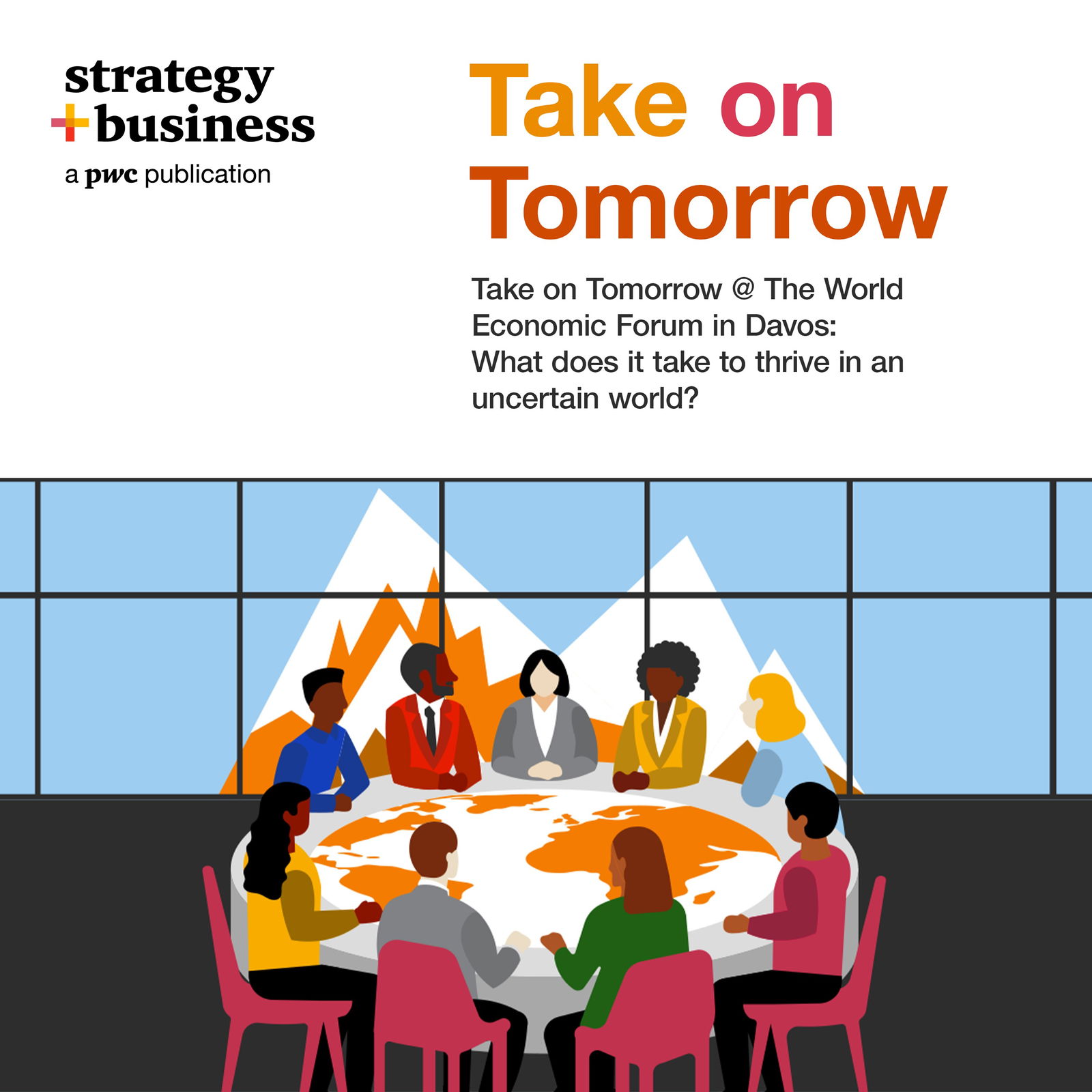
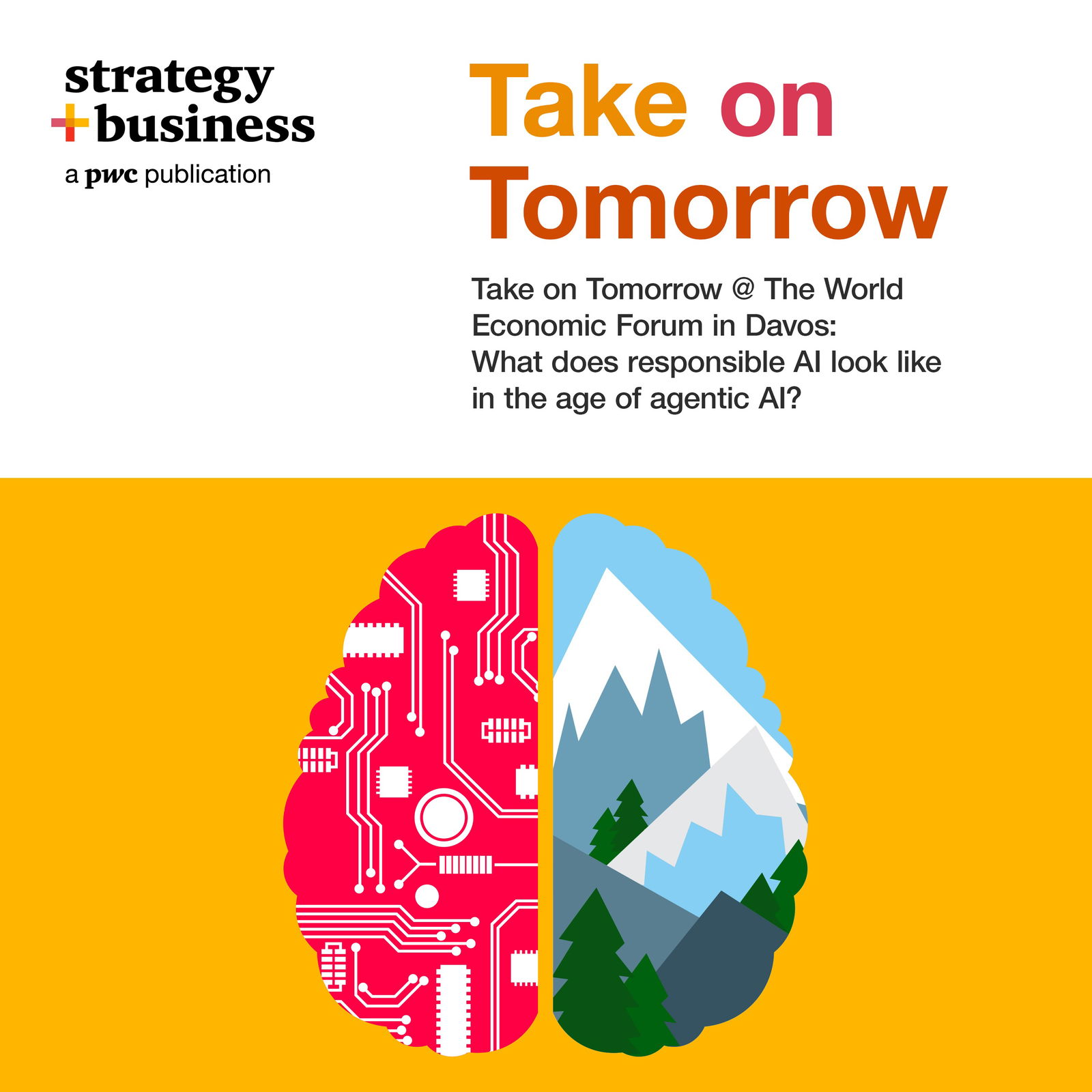
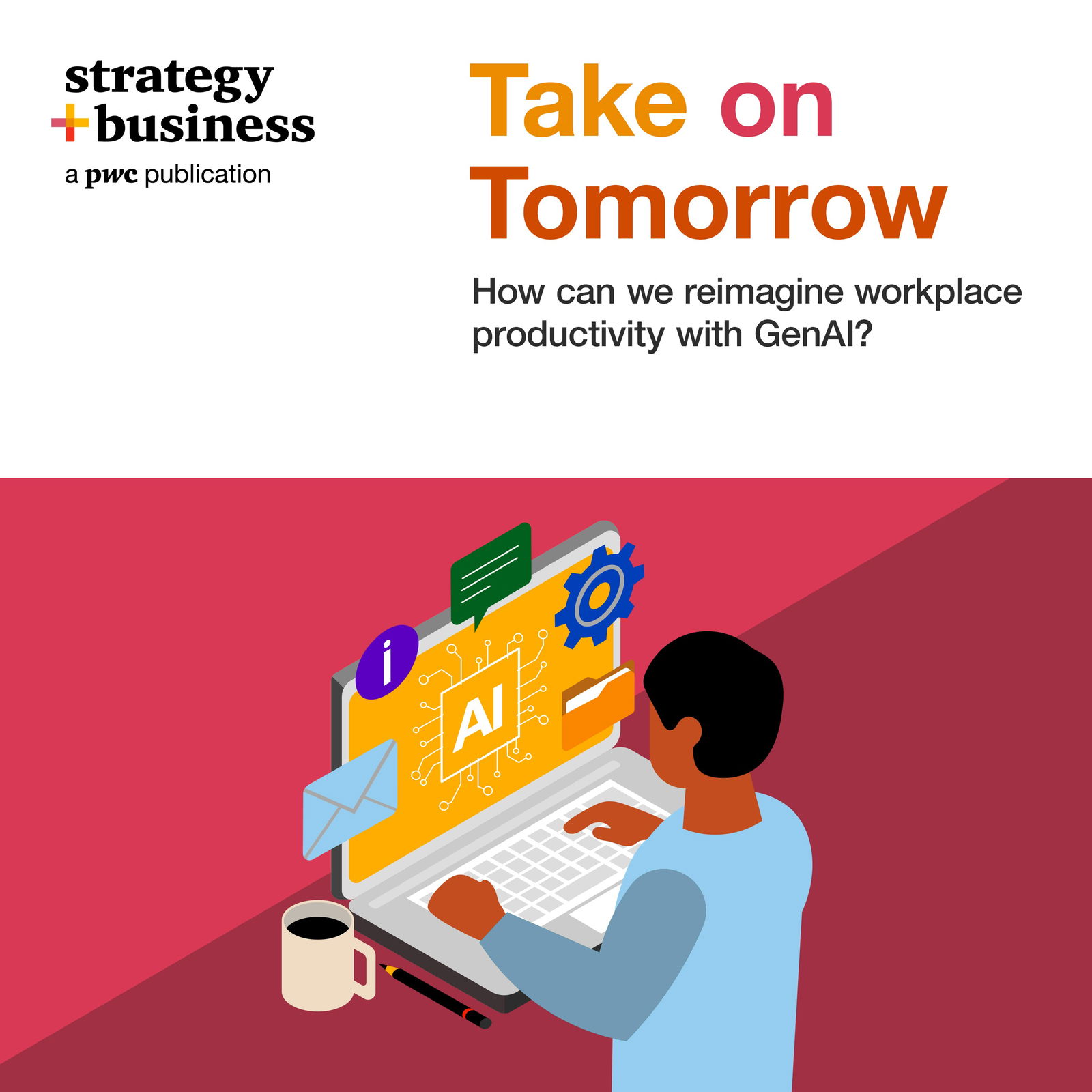
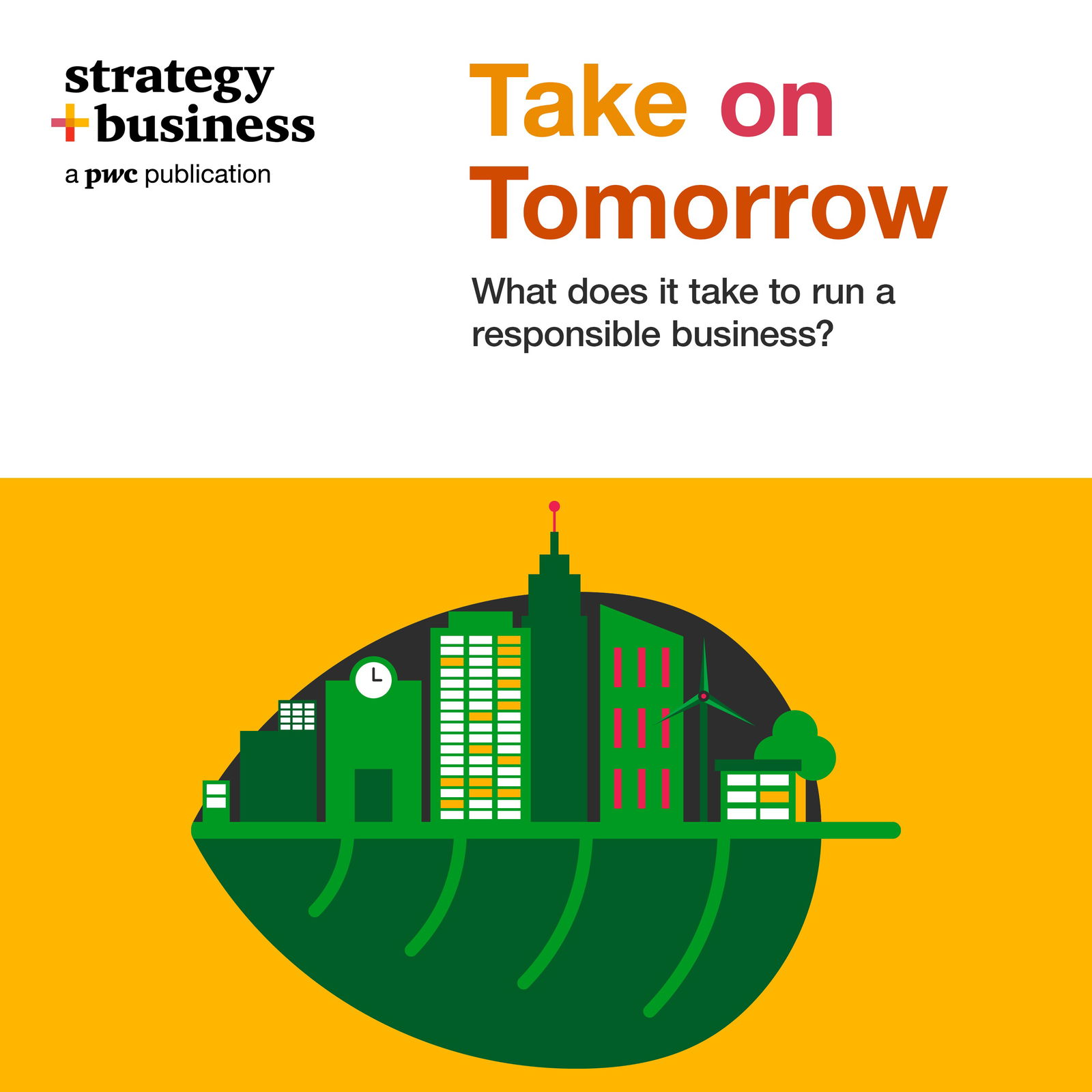
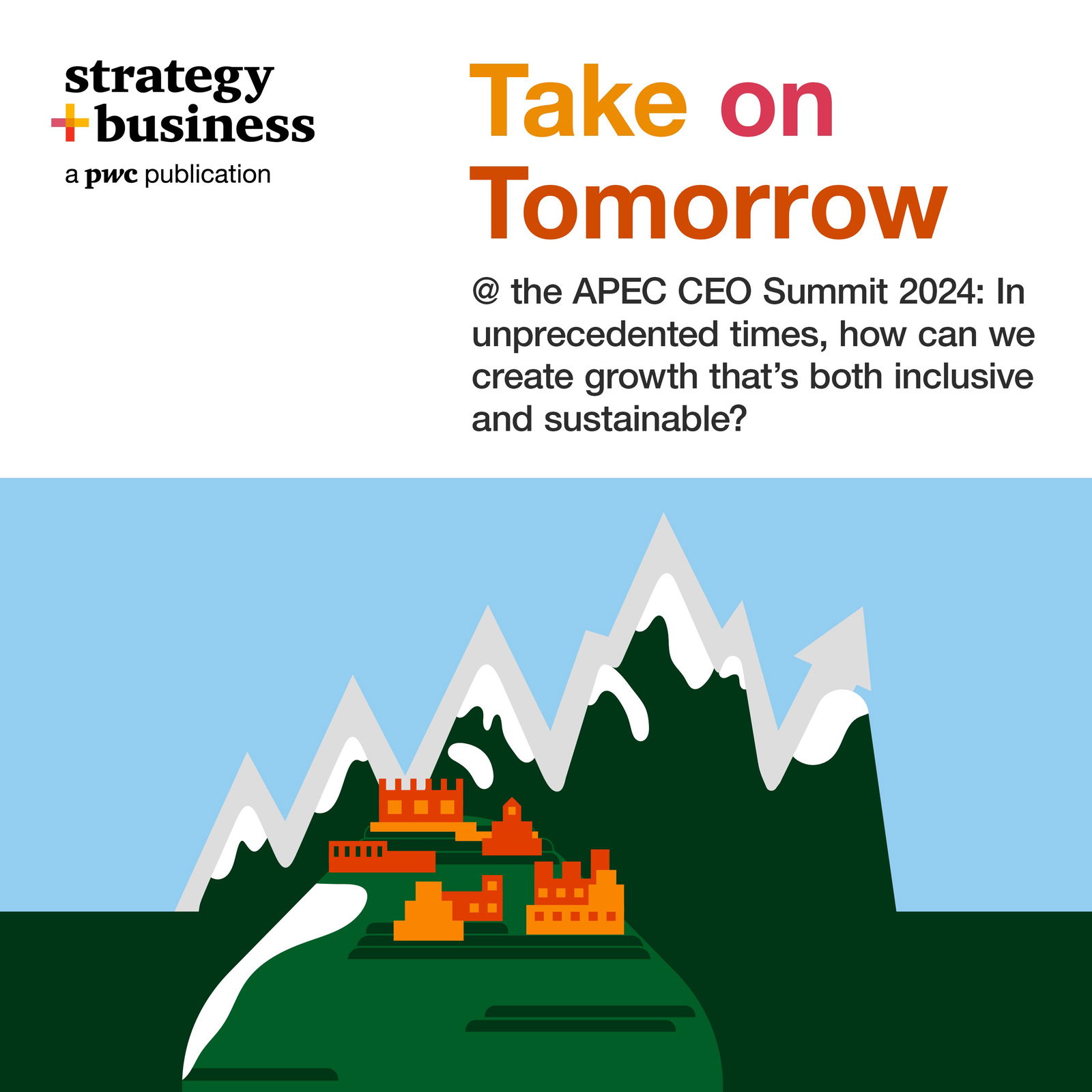
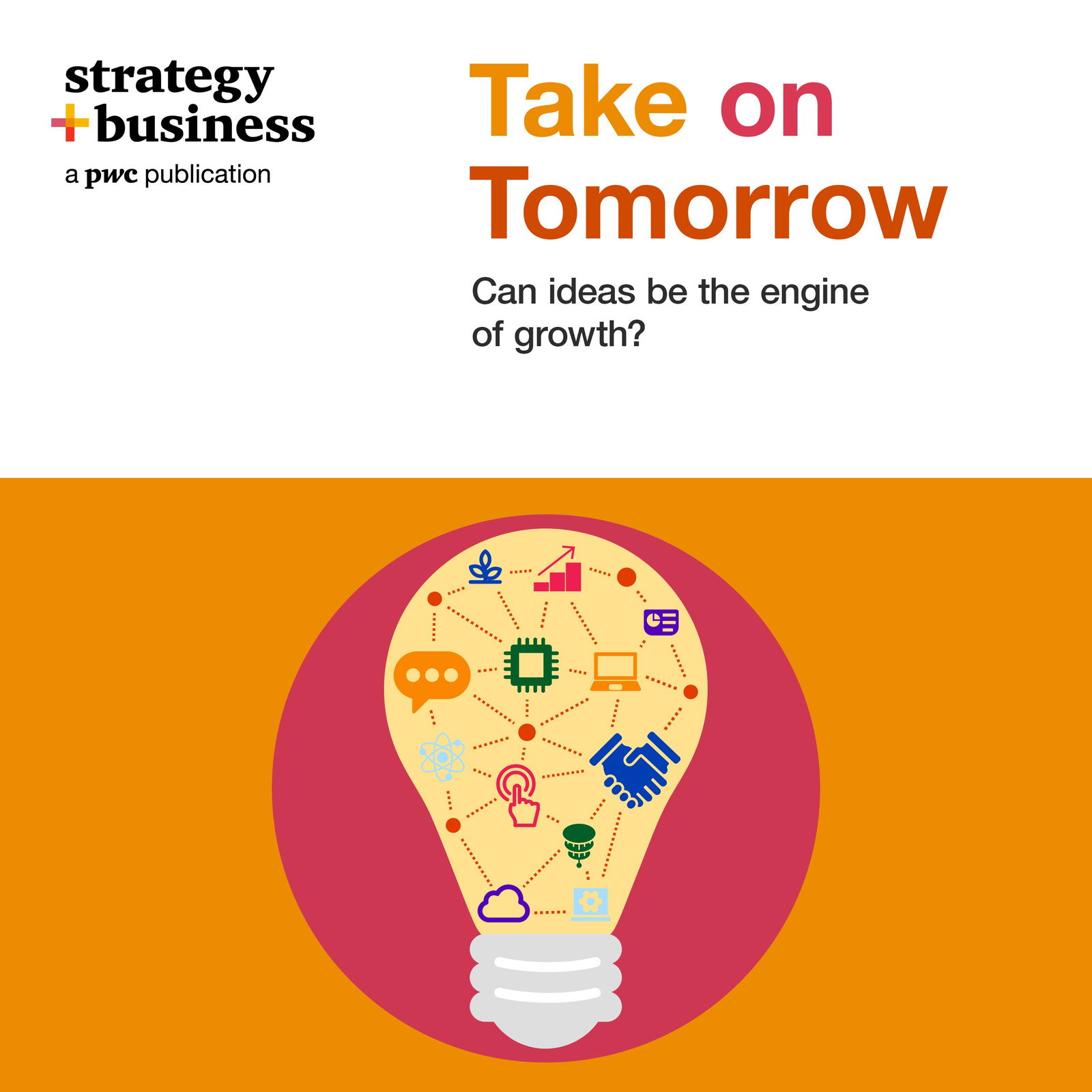
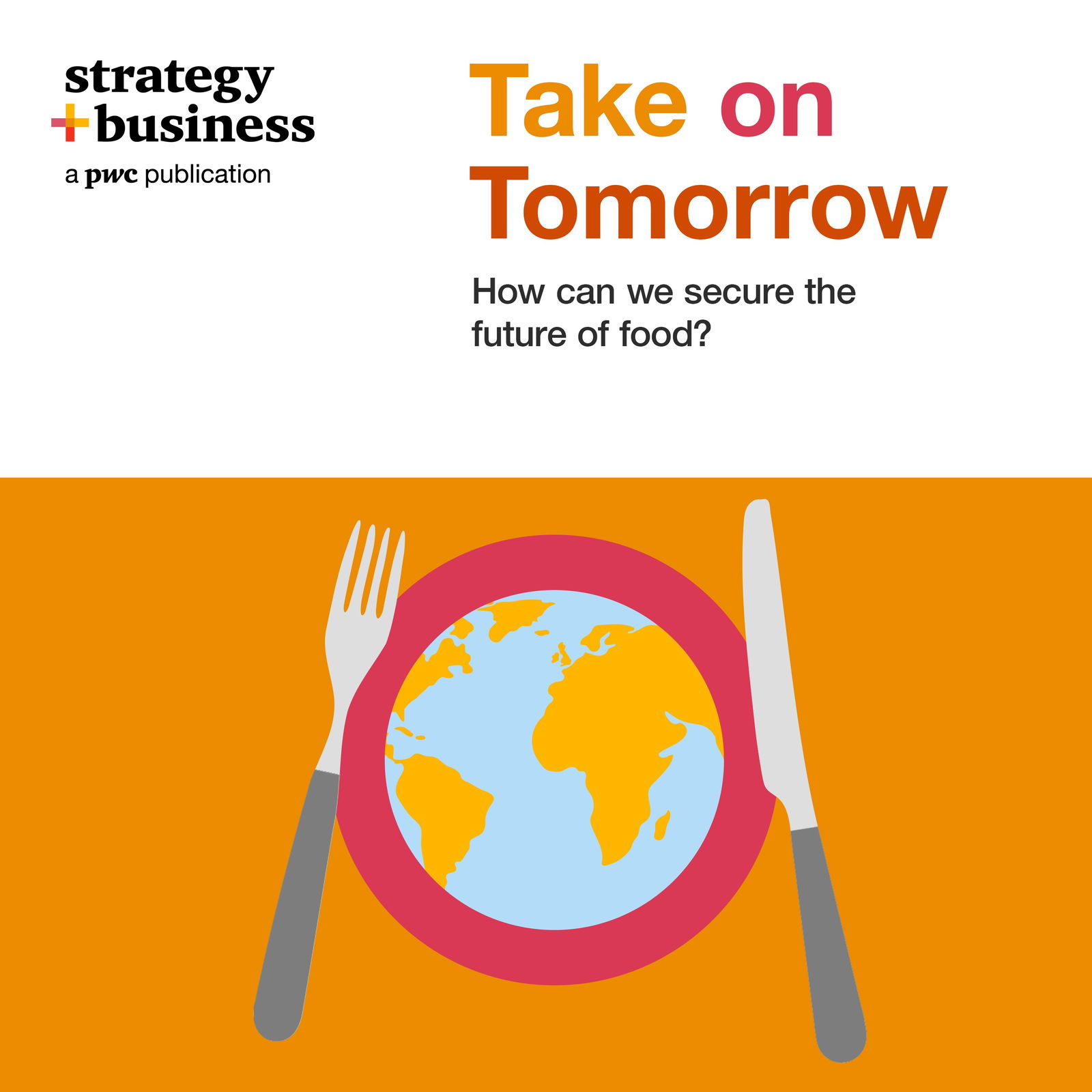
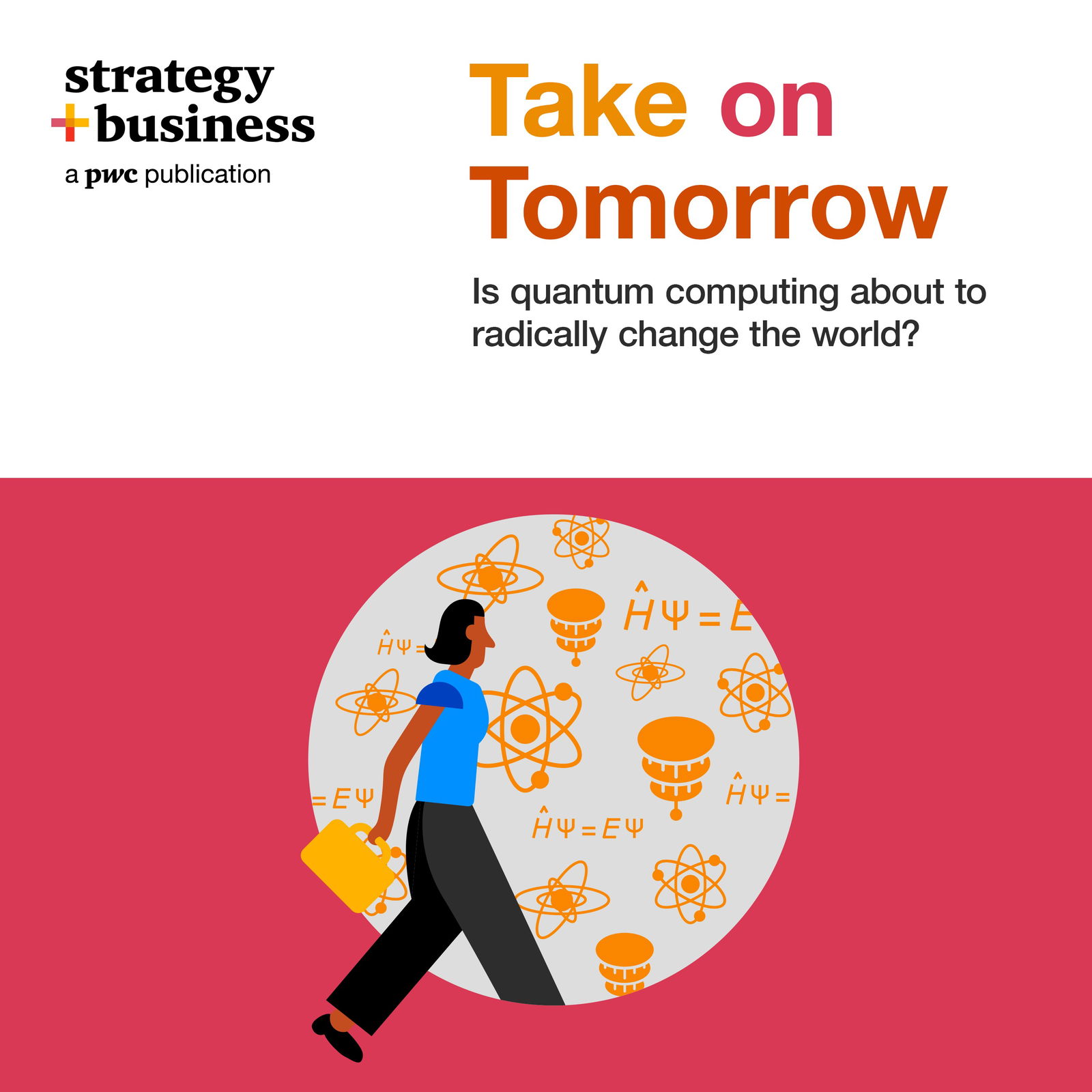
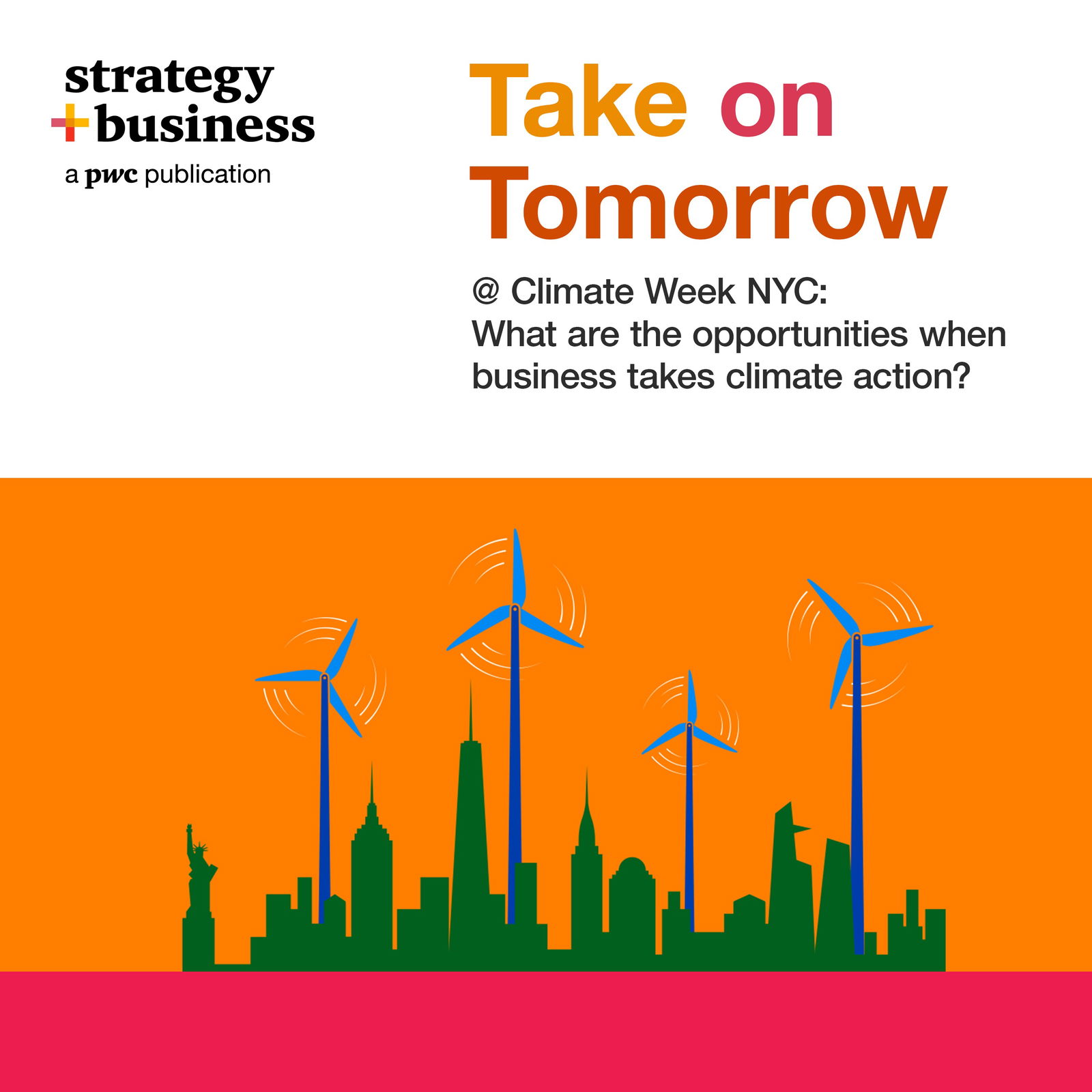
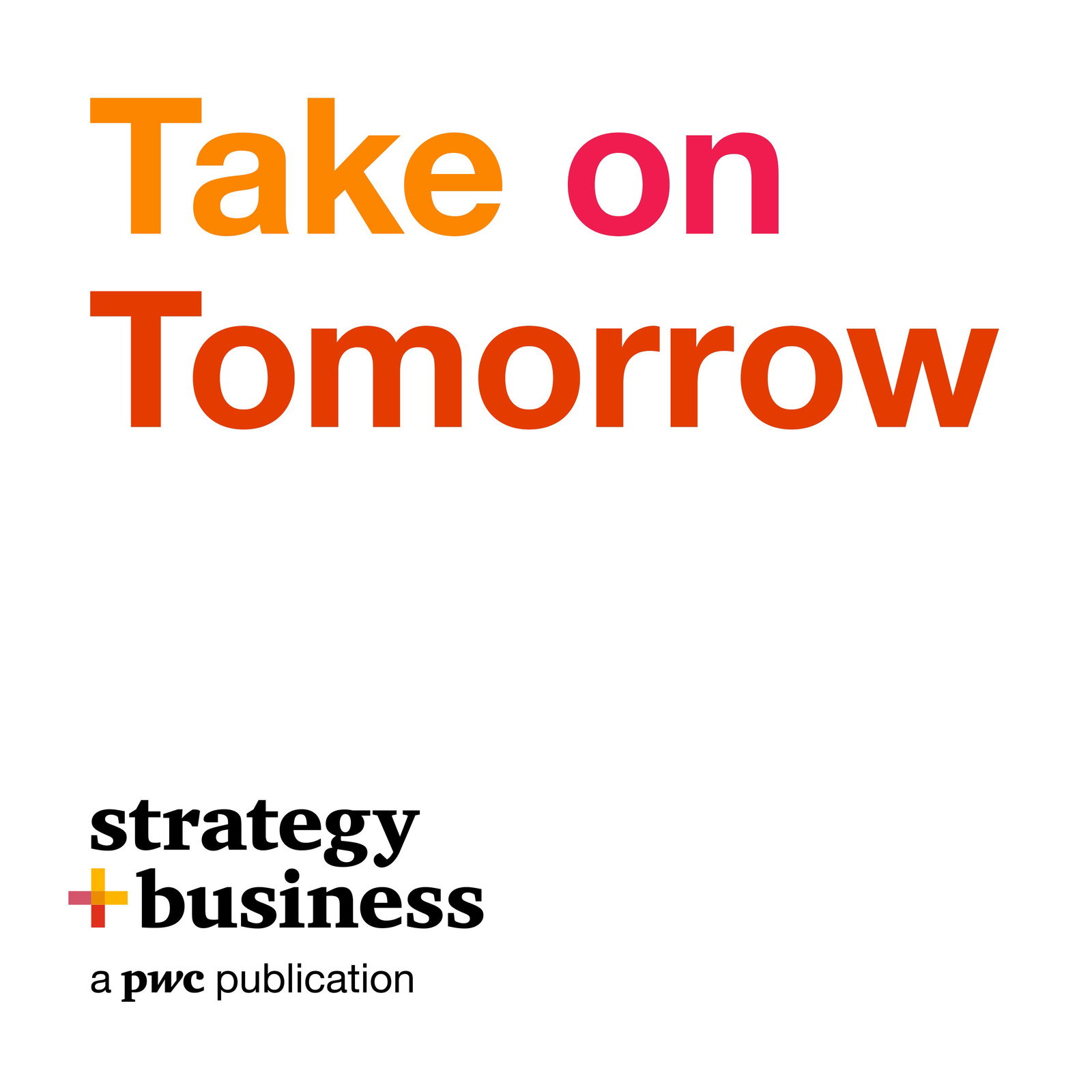



it's expected providing audiences practical principles and real solutions, not merely describing the current situation! could you please to kindly provide a list of effecient advice to understand main challenges?